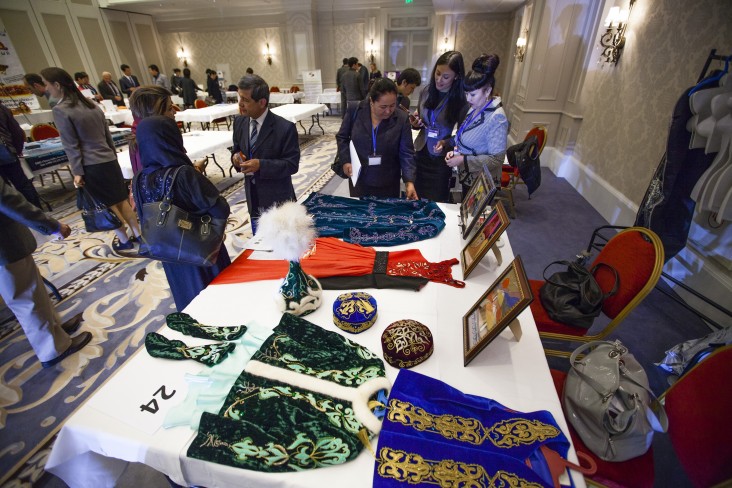
Since Kazakhstan became an independent republic in 1992, its economy has grown impressively. However, the country continues to struggle with a variety of economic challenges that have their roots in the Soviet era, including: an oil-based economy with a regulatory system that continues to impede business growth; limited media activity and low civic participation in governance; and a costly and ineffective medical system. About 25 percent of the population lives below the poverty line, and there are huge disparities between urban and rural areas and between geographic regions.
USAID works to support the development of small- and medium-sized enterprises, streamline the legal and regulatory conditions for business and trade, expand access to business information, and strengthen the public sector budget and audit processes. These programs help small- and medium-sized businesses establish connections with U.S. businesses. We also provide assistance to Central Asian firms that are interested in trading and investing across borders and in conducting business with the U.S. Department of Defense.
Results:
- USAID enabled extensive training for about 700 people in topics ranging from international public sector accounting standards, infrastructure, public-private partnerships, and global best practices in the business regulatory environment. These business leaders submitted over 50 policy change recommendations to the Government of Kazakhstan.
- We facilitated business development tours to the United States for business people from priority sectors; several participants from these groups reported preliminary agreements on further business contacts with U.S. partners.
- USAID contributed to a regional effort to standardize regulations and procedures for cross-border trade and facilitated regional forums that brought regional stakeholders together to share experiences and make recommendations on trade regulations.








Comment
Make a general inquiry or suggest an improvement.